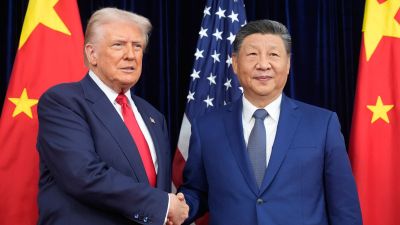Renegotiate deal, don’t hustle it through: BJP rubs it in
A meeting of the BJP top brass today reiterated its opposition to the Indo-US nuclear deal and called for its “renegotiation"...

A meeting of the BJP top brass today reiterated its opposition to the Indo-US nuclear deal and called for its “renegotiation.”
The meeting of the party’s core group took place amid indications that the party was formulating a more nuanced position on the deal after NSA M K Narayanan and Atomic Energy Commission Chairman Anil Kakodkar met the party leadership to reassure them that the deal does not impinge on India’s strategic weapons programme.
Former secretary of state Henry Kissinger and US Ambassador David Mulford had also met the BJP leadership seeking support for the deal.
But the core group decided that no amendment is required in the party’s stated position. It was felt that the government’s “reaching out” was too little too late and even that had little “political” weight. The party also took a view that the deal’s fate is not going to be decided by what the BJP does or not — it’s the Left that holds the key to it — and the party does not need to go out of the way to help the ruling alliance out of its predicament over the deal.
A joint statement issued by party president Rajnath Singh, leader of Opposition in Lok Sabha L K Advani and leader of Opposition in Rajya Sabha Jaswant Singh said: “The BJP has been and continues to be of the view that the UPA Government has made a significant strategic blunder by turning this deal into a kind of an icon of India’s relations with the US.”
The party has been careful to reiterate its commitment to Indo-US relations and keep its position distinct from the Left’s. The statement said, “the BJP has consistently stood for close Indo-U.S. cooperation and strategic partnership as between two equal sovereigns.”
“We stand opposed to the deal because in our view it compromises long term strategic programmes of India, vital for country’s security, neither will it help meet our energy needs of future. Therefore, the BJP strongly recommends that this deal must be renegotiated and not hustled through as the UPA Government is attempting to,” the party said.
Senior leaders Arun Jaitley, Yashwant Sinha, Arun Shourie, Sushma Swaraj, S S Ahluwalia, M M Joshi and Ravishanker Prasad were also present in the meeting at Advani’s residence.
A participant at the meeting said the party was not convinced of the government’s arguments that the deal would not affect India’s strategic concerns. He said the group discussed all aspects and the unanimous view was that the deal is not about India attaining energy security but covertly getting into a non-proliferation regime. The meeting discussed the rapidly changing neighbourhood of India and thought India cannot accept any capping of its weapons programme.
The party top brass concluded that the deal effectively puts a cap on it and India will not be in a position to conduct a test against American wishes after getting into wide and deep nuclear cooperation that involves huge investment.
He said the party leaders would travel to different parts of the country to explain their position on the deal. “Can we chose from an illusory electric bulb that the deal promises and a bomb that will not be allowed to detonate?” the leader said.







- 01
- 02
- 03
- 04
- 05
























